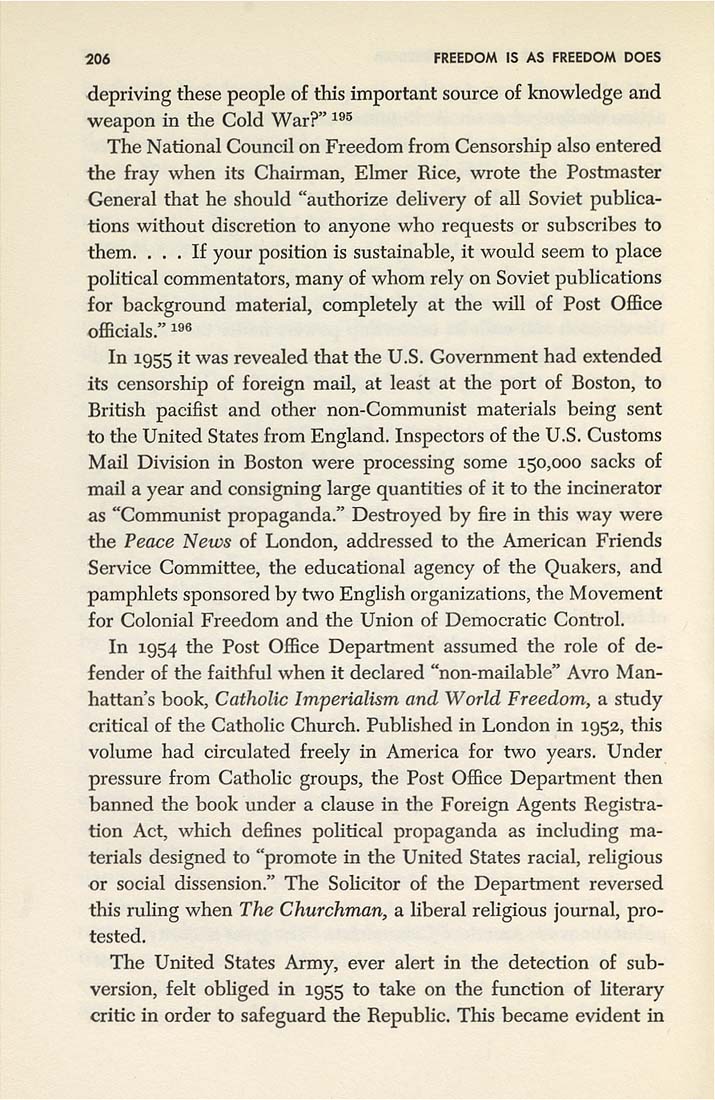206 FREEDOM IS AS FREEDOM DOES
depriving these people of this important source of knowledge and
weapon in the Cold War?" ^^^
The National Council on Freedom from Censorship also entered
the fray when its Chairman, Elmer Rice, wrote the Postmaster
General that he should "authorize delivery of afl Soviet publica¬
tions without discretion to anyone who requests or subscribes to
them. ... If your position is sustainable, it would seem to place
political commentators, many of whom rely on Soviet publications
for background material, completely at the vidU of Post Office
officials." 198
In 1955 it was revealed that the U.S. Government had extended
its censorship of foreign mail, at least at the port of Boston, to
British pacifist and other non-Communist materials being sent
to the United States from England. Inspectors of the U.S. Customs
Mail Division in Boston were processing some 150,000 sacks of
mail a year and consigning large quantities of it to the incinerator
as "Communist propaganda." Destioyed by fire in this way were
the Peace News of London, addressed to the American Friends
Service Committee, the educational agency of the Quakers, and
pamphlets sponsored by two English organizations, the Movement
for Colonial Freedom and the Union of Democratic Control.
In 1954 the Post Office Department assumed the role of de¬
fender of the faithful when it declared "non-mailable" Avro Man¬
hattan's book. Catholic Imperialism and World Freedom, a study
critical of the Catholic Church. Published in London in 1952, this
volume had circulated freely in America for two years. Under
pressure from Catholic groups, the Post Office Department then
banned the book under a clause in the Foreign Agents Registia¬
tion Act, which defines political propaganda as including ma¬
terials designed to "promote in the United States racial, religious
or social dissension," The SoHcitor of the Department reversed
this ruHng when The Churchman, a liberal rehgious journal, pro¬
tested.
The United States Army, ever alert in the detection of sub¬
version, felt obliged in 1955 to take on the function of literary
critic in order to safeguard the Republic, This became evident in
|








